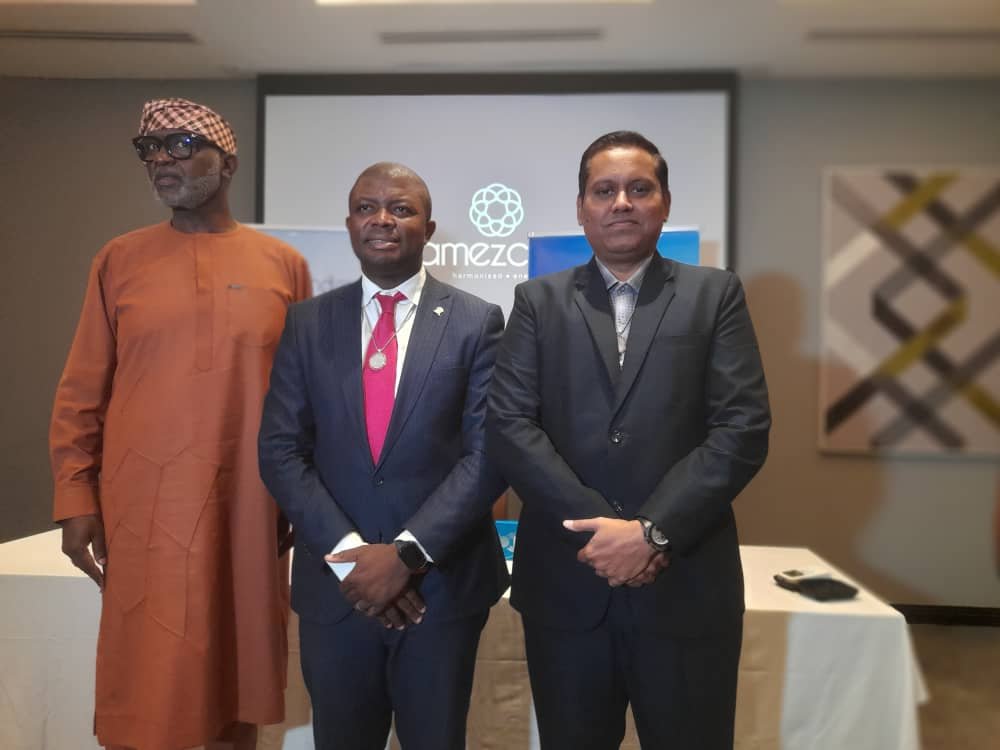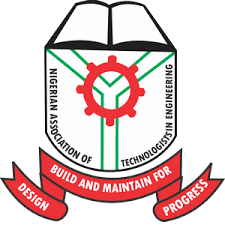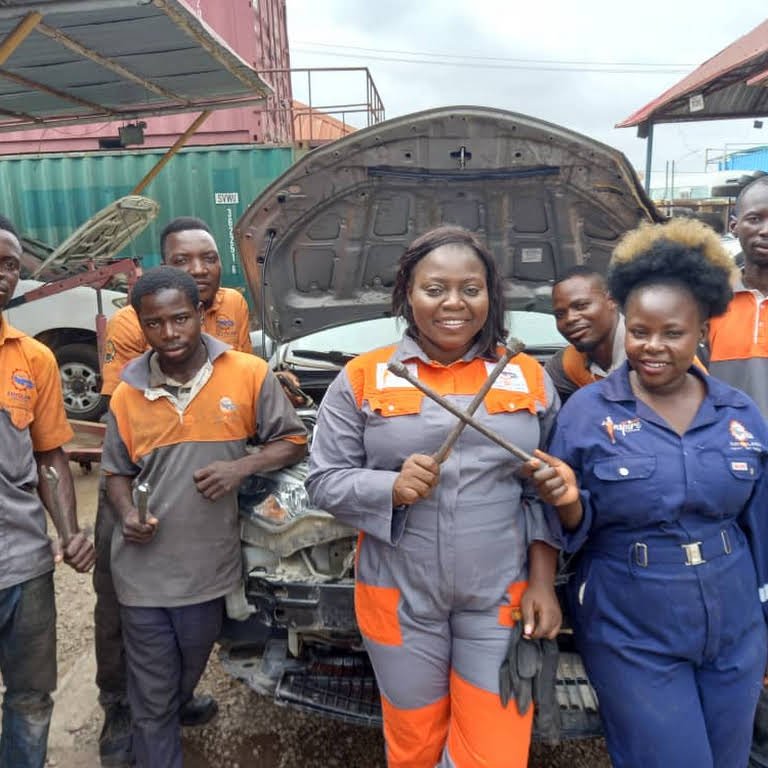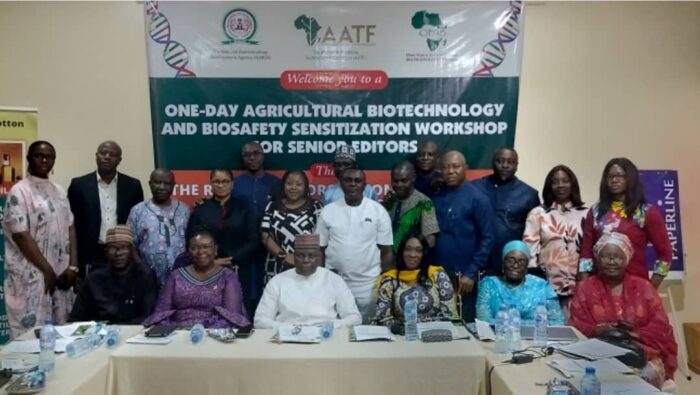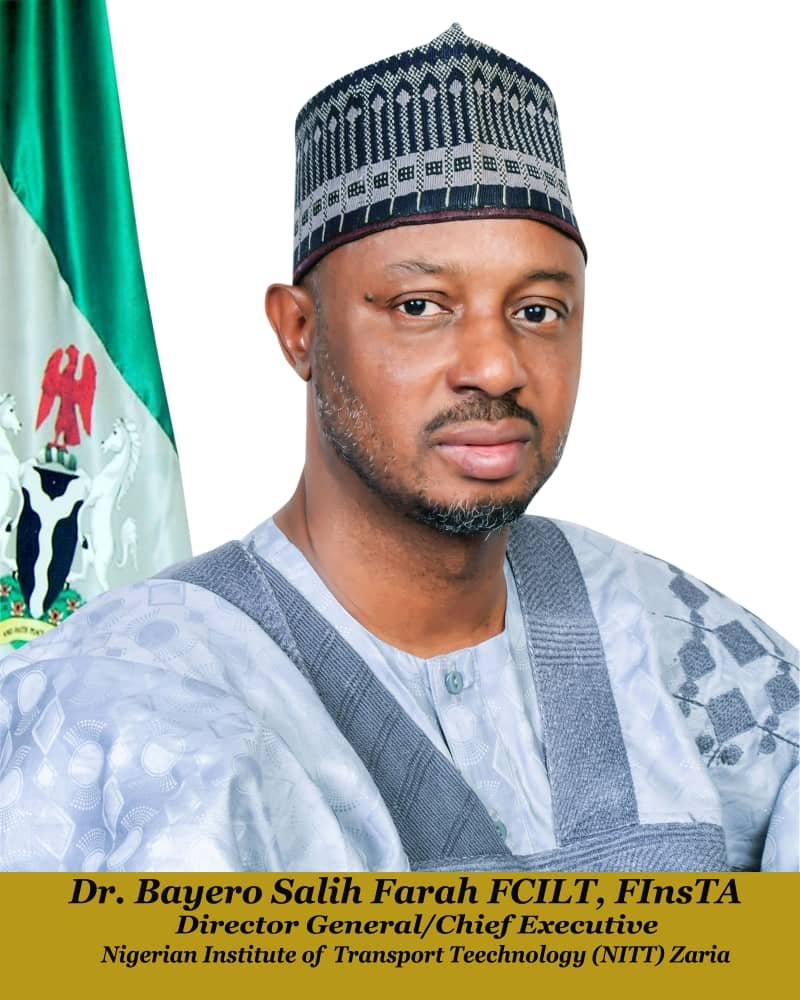By Funmilola Gboteku
The National Association of Technologists in Engineering (NATE) has fabricated an industrial Tiger-Nut processing machine to boost the nation’s agricultural sector.
Mr Kayode Ibidapo, Chairman of NATE, Lagos Branch, made this known during the association’s 2023 award ceremony, induction of new members and the unveiling of the industrial tiger-nut processing machine at FIIRO, Oshodi, Lagos.
The theme of the event was, “Technological Advancement and the Nation’s Economic Growth.
Ibidapo said that the machine was fabricated with raw materials gathered from Nigeria, and could be used for extracting high-quality milk from both tiger-nuts and coconut.
According to the chairman, NATE, as an association, keeps inventing new machines to ensure technological improvement in Nigeria.
“Instead of us to be importing machines, why can’t we produce these machines in Nigeria? We have all the raw materials we need to make these inventions.
“What we need to know is that machines fabricated or made in Nigeria are easy to repair, because all the spare parts are available here.
“Also machines made in Nigeria can be sold here to boost the country’s Gross Domestic Product,” Ibidapo said.
He said that as an association, they had invented so many machines ranging from egg incubator, coconut de-shelling machines, rice destoner and castor oil de-husking machine among others.
Ibidapo said that these indigenous machines could save farmers the stress of spending so much on imported ones, since the ones made in the country were cheaper.
On the newly inducted members, he urged them to stand tall and be of impeccable character.
Ibidapo said that the inductees needed to use technology to create employment and phase out unemployment among graduates.
He also urged them to key into the compulsory continuous professional developmental programme to enhance lifelong learning.
The News Agency of Nigeria (NAN) reports that 115 members were inducted during the ceremony.
In her speech, Dr Jummai Tutuwa, the Director-General, Federal Institute of Industrial Research Oshodi (FIIRO), commended the association on its new invention.
She said that NATE members in FIIRO had continued to distinguish themselves as worthy ambassadors by helping to translate research findings into ready-to- invest prototype equipment.
“NATE’s contributions are even more urgently required now in the nation’s drive for rapid commercialisation of research results through pilot plant production and equipment fabrication.
“This, I believe, is the only way to fast-track the development of Small and Medium-scale Enterprises (SMEs) in our country, and also to make research outputs become relevant to the needs of the society.
“Although, FIIRO has worked with NATE on equipment fabrication, training of technicians, technologists and exhibitions, this relationship with NATE has grown over the years and has become mutual,” Tutuwa said.
The FIIRO director-general noted that the Institute still wanted to partner with NATE in the areas of vocational training of welders, fabricators, artisans and technicians using the facilities available in the institute.
She said the partnership would have a multiplier effect on the nation’s economy. (NAN) (www.nannews.ng)
Edited by Oluyinka Fadare





